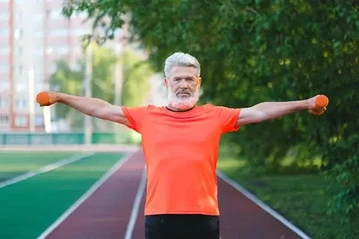Why Mental Health Care is Essential for Retired Athletes
Athletes dedicate their lives to physical excellence, relentless training, and competitive performance. Their mental resilience is often as celebrated as their physical prowess. However, retirement from professional sports brings unique challenges that can profoundly affect their mental health. Understanding the importance of mental health care for retired athletes is crucial to supporting their transition into a new chapter of life.
The Transition from Professional Sports
For many athletes, their sport is more than just a career—it becomes their identity. The end of their professional journey can leave them grappling with a sense of loss. The structured schedules, camaraderie of teammates, and adrenaline rush from competition disappear overnight, leaving a void that can lead to feelings of isolation and depression.
Identity Crisis
Athletes often identify themselves primarily through their sport. Upon retirement, they may struggle to redefine who they are without the titles and accolades associated with their athletic careers. This identity crisis can lead to anxiety, confusion, and self-doubt.
Loss of Routine
Sports training instills a strict daily routine that helps athletes maintain peak performance. Retirement disrupts this structured lifestyle, leaving many unsure of how to manage their time effectively. The absence of a routine can contribute to feelings of aimlessness and dissatisfaction.
Financial and Career Concerns
While some athletes retire with significant earnings, many face financial uncertainties. Transitioning to a second career can be daunting, especially if they lack the education or skills for other industries. This financial stress can exacerbate mental health struggles.
Mental Health Challenges Faced by Retired Athletes
Depression
The end of a sports career can trigger depressive symptoms, including sadness, fatigue, and loss of interest in daily activities. The lack of purpose and social connection often fuels these feelings.
Anxiety
The pressure to "succeed" after sports can lead to anxiety. Questions about future employment, financial stability, and social roles often dominate the thoughts of retired athletes.
Substance Abuse
Some retired athletes turn to alcohol or drugs as a way to cope with the emotional turmoil of retirement. The loss of the natural endorphin highs from physical activity may also contribute to substance misuse.
Post-Traumatic Stress Disorder (PTSD)
The intense experiences of professional sports, including injuries and the stress of competition, can leave athletes with PTSD-like symptoms. Flashbacks, hyper-vigilance, and emotional numbness are not uncommon.
The Role of Mental Health Care
Counseling and Therapy
Psychological counseling and therapy provide retired athletes with a safe space to explore their feelings and develop coping strategies. Cognitive-behavioral therapy (CBT) and other evidence-based approaches can help manage anxiety, depression, and identity issues.
Support Groups
Connecting with other retired athletes who share similar experiences can be incredibly therapeutic. Support groups foster a sense of community and reduce feelings of isolation.
Career Coaching
Professional career coaches can assist retired athletes in discovering new passions and navigating second careers. Identifying transferable skills and setting new goals can reignite a sense of purpose.
Mindfulness and Stress Management
Mindfulness practices such as meditation, yoga, and breathing exercises help reduce stress and promote mental well-being. These techniques empower retired athletes to stay present and manage negative emotions.
Physical Activity and Mental Health
While professional sports may be over, physical activity should remain a vital part of retired athletes’ lives. Exercise is a powerful tool for maintaining mental health. Regular physical activity releases endorphins, improves mood, and boosts self-esteem.
Finding New Ways to Stay Active
Exploring new forms of exercise can be exciting and liberating. Retired athletes might enjoy activities like hiking, cycling, or dance classes. The key is to find joy in movement without the pressure of competition.
Injury Management
Many retired athletes face chronic pain or injuries from their careers. Working with physical therapists and adopting gentler forms of exercise can help manage pain and improve overall well-being.
The Importance of Social Connections
Maintaining strong social connections is essential for mental health. Retirement can sever the built-in social networks of sports teams, leaving athletes feeling isolated.
Rebuilding Social Networks
Encouraging retired athletes to engage in community activities, join clubs, or volunteer can help them build new social connections. Reconnecting with old friends and family also strengthens their support system.
Breaking the Stigma Around Mental Health
Despite growing awareness, stigma around mental health persists, particularly in the world of sports, where strength and resilience are prized. Encouraging open conversations about mental health can help retired athletes seek the support they need.
Role Models and Advocates
High-profile athletes who speak openly about their mental health struggles can serve as powerful role models. Their stories can inspire others to prioritize mental well-being and seek help.
Education and Awareness
Educational initiatives aimed at both current and retired athletes can normalize mental health care. Understanding that mental health is as important as physical health is crucial.
Building a Holistic Support System
A comprehensive approach to mental health care for retired athletes involves collaboration between sports organizations, healthcare providers, and communities.
Role of Sports Organizations
Sports organizations have a responsibility to prepare athletes for life after sports. Providing mental health resources and transition programs can ease the shift to retirement.
Healthcare Providers
Healthcare providers, including mental health professionals, should be trained to understand the unique needs of retired athletes. Collaborative care models that address both physical and mental health are ideal.
Community Involvement
Community initiatives that welcome retired athletes can foster a sense of belonging. Mentorship programs, coaching opportunities, and speaking engagements allow athletes to give back while maintaining a connection to their sport.
Conclusion
Mental health care is essential for retired athletes as they navigate the challenges of transitioning away from professional sports. Addressing issues such as identity loss, depression, and anxiety through counseling, social connections, and physical activity can lead to a fulfilling post-sports life. By breaking the stigma surrounding mental health and building robust support systems, we can empower retired athletes to thrive long after their final game.
Robert Weigel
Works Cited: “Men and Therapy” prompt, ChatGPT, 20 July version, Open AI, 20 July 2023, http://chat.openai.com/chat.

